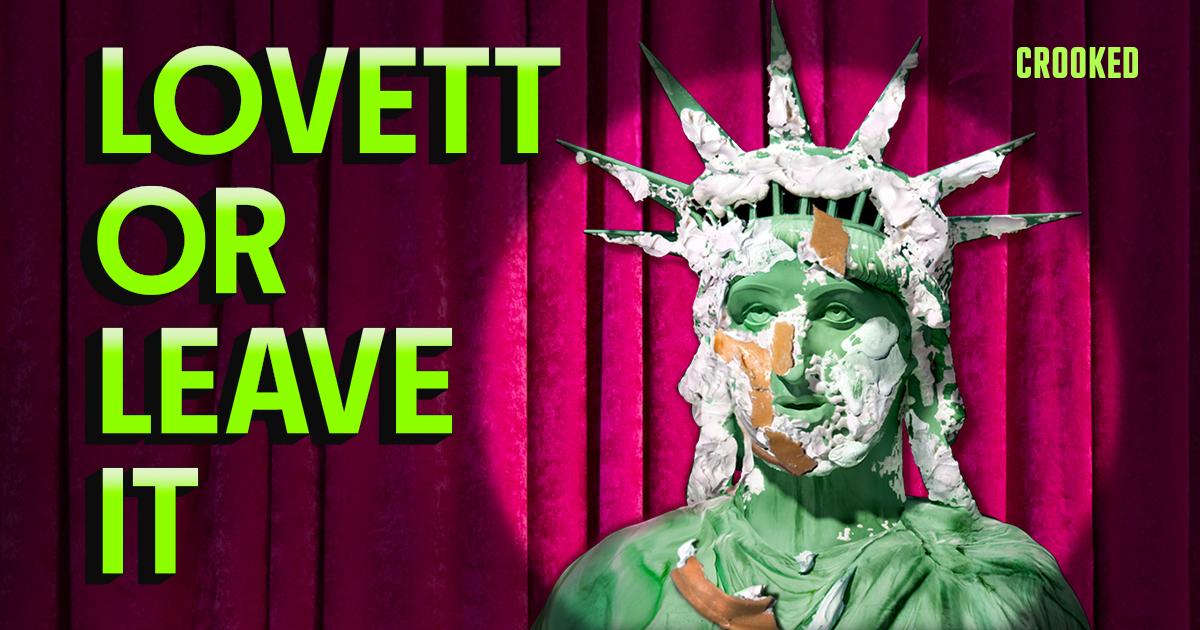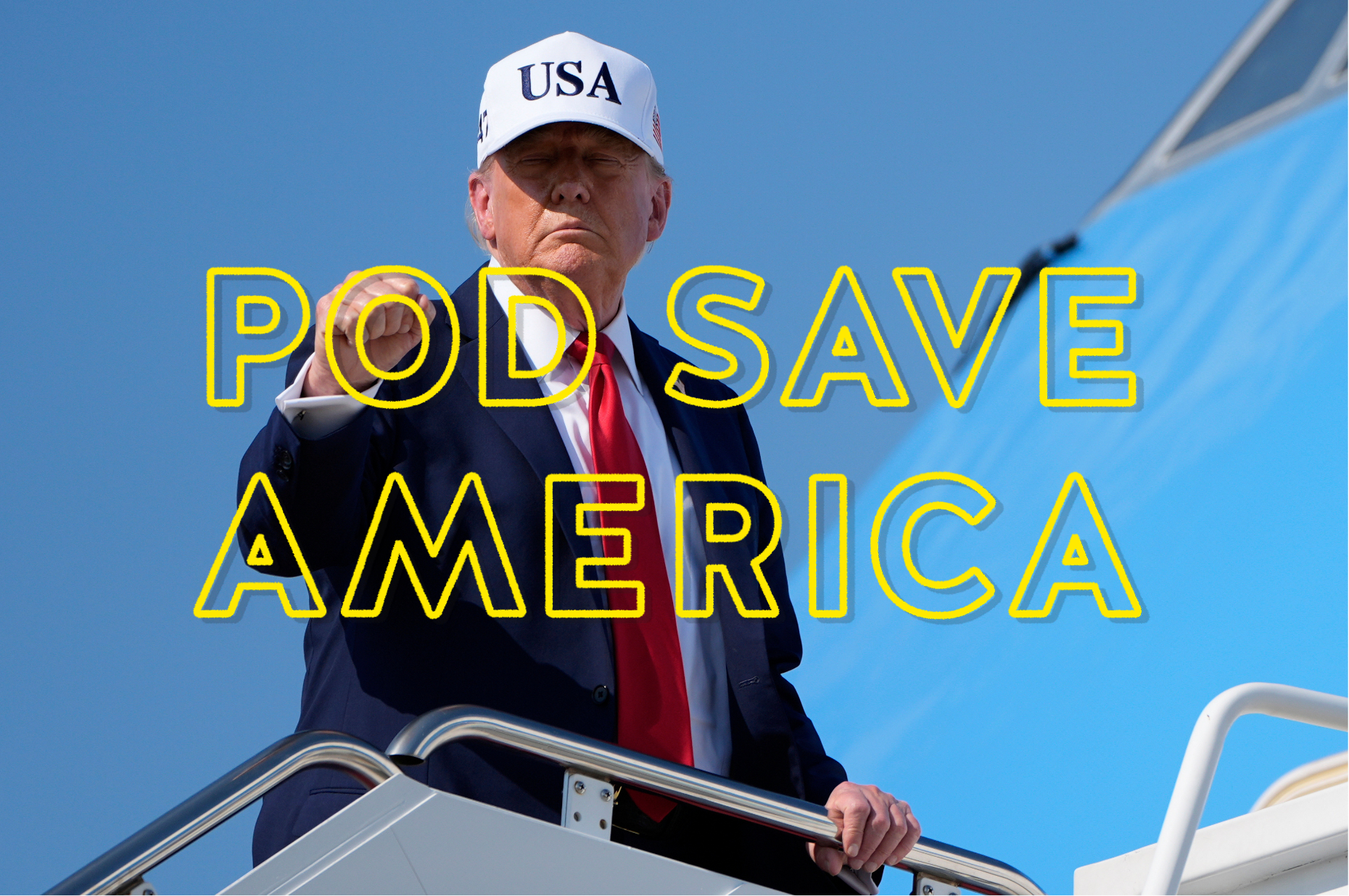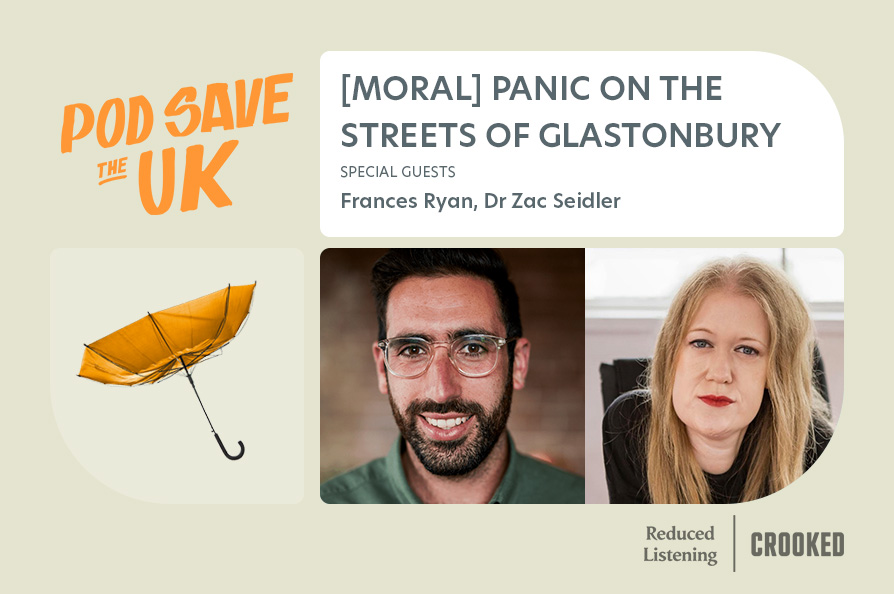
Across the street from my house, just outside Cleveland, a yard sign reads Everything will be OK. Last week, our block held an impromptu “Social Distancing Party.” Neighbors gathered on front lawns, children rode bikes on opposite sides of the street, and parents shared greetings and encouragement across driveways. My kids have joined others—virtually, of course—to make masks for health-care providers and delivery drivers who every day put themselves at great risk of contracting COVID-19. And local schools are working overtime to ensure that free lunches are still provided to every child who needs one. This is the side of America that gives me hope.
But there is another side. We see it in empty supermarket shelves, long lines at gun stores, and the obsession over Wall Street fortunes as millions of ordinary Americans face financial ruin. We see it in the naked quest for power, whatever the cost in lives, like in Wisconsin, where the Republican legislature refused to either delay an election, or make it safe to cast ballots, forcing citizens in densely populated (and largely Democratic) Milwaukee to risk their lives to vote.
As the former president of a relief organization, I have been to many disaster zones. There are always people who choose to believe the worst about their neighbors. Some let that fear run wild. When I arrived in the Bahamas in the immediate wake of Hurricane Dorian, landowners had already begun forming militias. My relief team encountered roadblocks manned by heavily armed white residents, issuing dire warnings about “roving bands of Haitians.” Some people, I have learned, will find any excuse to validate their prejudices, especially if it means donning body armor and pretending to be brave (The only “roving Haitians” I encountered were those who approached to offer their thanks).
America is in the midst of the greatest natural disaster it has ever experienced. The coronavirus pandemic has caused enormous suffering, with more to come. But as justified as our concerns about COVID-19 may be, there is real danger that fear of the virus will mutate into something even worse. Fear of each other. As a nation, we have confronted crises before. Usually, our reflex is to unite, to seek ways to meet the challenge together. The assault on Pearl Harbor rallied Americans to beat back fascism. The September 11 attacks provoked a similar response against terrorism. In every such instance, presidents have taken steps to foster public support.
During national emergencies, presidents wield enormous powers. But their greatest source of power is public sentiment, and they marshal it with the content and tone of their words. FDR’s fireside chats, somber yet confident, communicated his commitment to keeping the nation informed. George W. Bush’s visit to a mosque in the wake of 9/11, and his denunciation of anti-Muslim bigotry, signaled his intent to unite the whole country. To be sure, both men made serious errors as wartime presidents. But they attempted, as best they could, to lead the entire nation.
Our current president is not even trying. Long before COVID-19, Trump made clear that he would serve only those who paid tribute. Even during past crises, he chose to pit Americans against one another. As wildfires raged across California in 2018, Trump laid blame at the feet of Democrats, then threatened to withhold assistance. In the midst of the current pandemic, he has conditioned support to citizens on whether their governors “say nice things” about him. After ignoring early warning signs about COVID-19, then wasting crucial months to slow its spread and stockpile supplies, Trump refused to accept any responsibility for his administration’s failures, and instead accused medical workers of stealing masks when supplies ran low. At every turn, our president has undermined Americans’ belief in one another.
This loss of faith inevitably filters downward. In Ohio, one of its clearest symptoms is the classification of gun sales as essential services. In some areas, ammunition is selling faster than toilet paper. “The pandemic,” observes Eric Liu, “is forcing Americans to choose, very visibly, whether to live like citizens or like sociopaths. Citizens see in systems, while sociopaths see only themselves….” I have seen what societal breakdown looks like in other countries during disasters. In America today, COVID-19 is not only testing our notion of what citizenship means, it is challenging our very sense of nationhood. What happens, then, when the supposed leader of our society is himself a sociopath?
One of the most resilient features of American democracy is its distribution of power. Trump’s total abdication of leadership has left a vacuum. But stepping in to fill it are governors, mayors, and all manner of other civic leaders. Even my own kids, by joining others to make face masks, are helping to set an example where this president will not. These distributed acts of selflessness instill in me a fierce pride in my community, and a deep appreciation for my neighbors. But as an American, it hurts to think that we may survive or succumb to this crisis not as a nation, but as a thousand fragmented communities.
Is that the best we can do? Does our fate depend entirely on whether we happen to live in one of those neighborhoods that has chosen (or has the resources) to come together? I cannot accept that. Even with a president who has no intention of leading the whole nation, there is a way Americans can meet this moment together. After 9/11, there was much talk of expanding national service programs, to channel the shared sense of purpose Americans initially felt. This idea has often been presented as a kind of panacea to cure any number of societal ills, especially since the end of conscription after the Vietnam War.
But none of the disasters we have faced since then has been severe enough to necessitate it. A worldwide epidemic that may plunge the country into yet another depression is different. We desperately need to resurrect that civic impulse, to put Americans back to work assisting our most vulnerable communities, and to ignite the kind of service-oriented citizenship that has helped us through past crises.
Imagine deploying tens of thousands of young Americans with proven immunity as front-line healthcare workers. Or re-engaging hundreds of thousands of military veterans—many of whom have medical experience—in a new call to service. The moral and patriotic rationale should be convincing on its own. For those who remain skeptical, the economic math is equally compelling. Programs like AmeriCorps return far more than they cost, especially when the urgency of re-engaging our workforce can help meet the current crisis head-on.
COVID-19, and the economic turmoil it has caused, have created a perfect storm. As successive waves of this disease re-emerge over the coming months and years, we will need large rapid reaction forces to provide critical services to those most in need. As for addressing the financial damage of this pandemic, millions of younger Americans will seize the opportunity to go back to work as part of this new mission. We know presidential leadership will not pave the way. But with the architecture of AmeriCorps already in place, the hard part is done. By expanding appropriations to existing programs, Congress can make it happen. The next stimulus bill presents an ideal opportunity for a trial run.
Policy, at its best, shapes public behavior for the betterment of all. Today, America is on a knife’s edge between rising to the challenge of battling COVID-19 and seeing our sense of nationhood disintegrate before our eyes. We know the burdens of this pandemic are not borne equally, and we may not enjoy the kind of presidential leadership such a crisis normally demands. But the rest of us still have a say over which path we ultimately take.
Ken Harbaugh is a former Navy pilot and nominee for the U.S. House of Representatives. Follow him on Twitter at @Team_Harbaugh.



